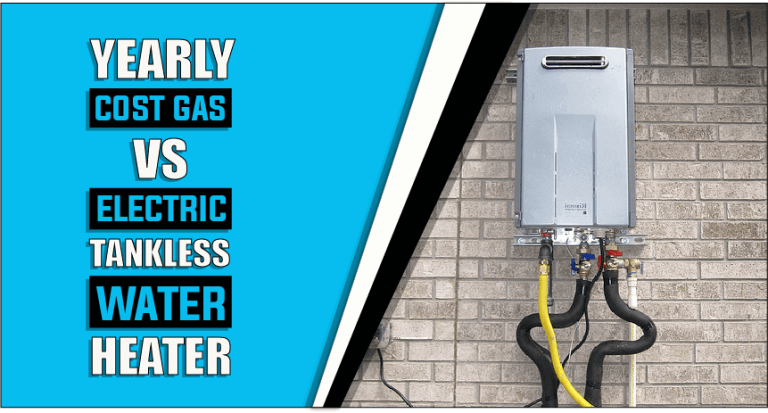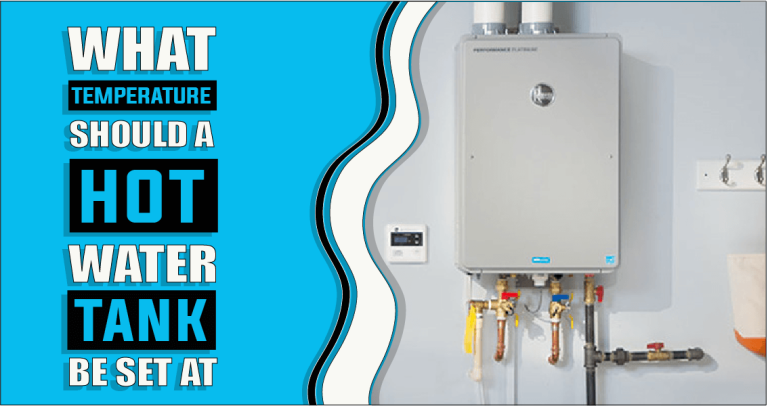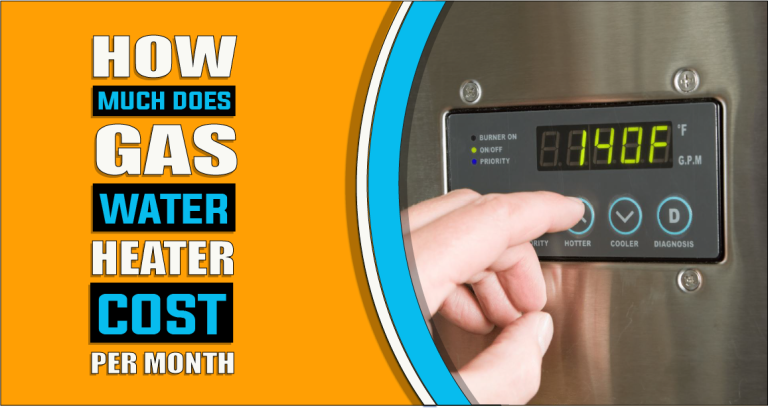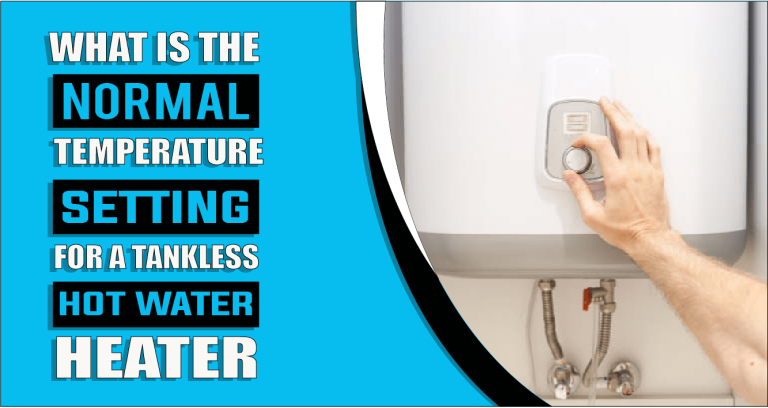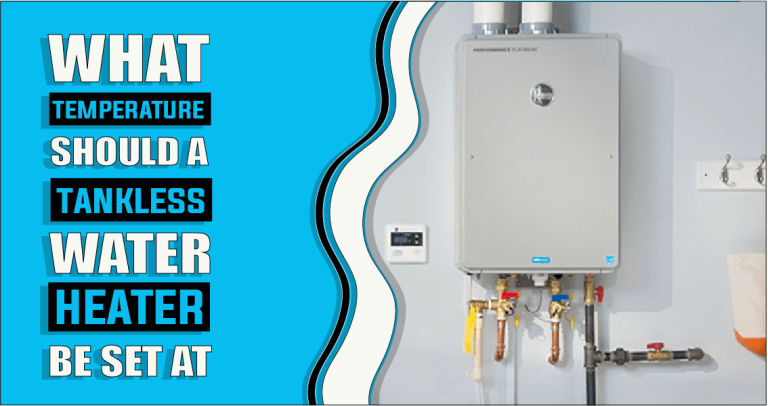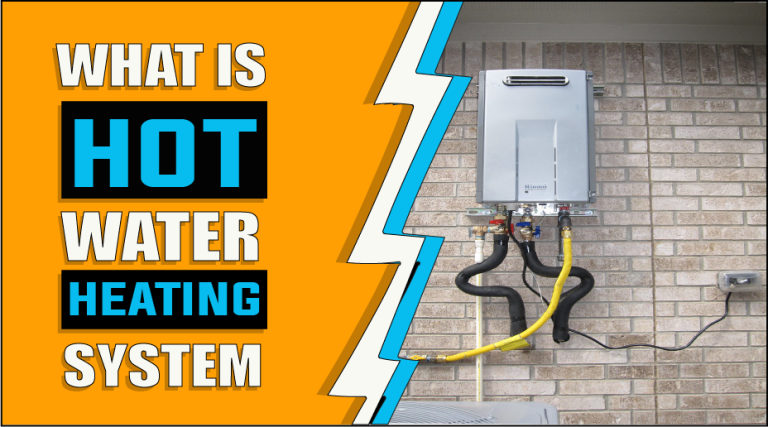How Much Should A Hot Water Heater Replacement Cost | Deciphering the Price Tag
Are you facing the daunting task of replacing your water heater? Wondering how much it should cost? Look no further. In this article, we will explore the factors that influence the cost of replacement of the heater. From the type of heater to installation fees and additional expenses, we will break down the pricing details to help you make an informed decision. Whether considering a traditional tank-based heater or a more modern tankless option, understanding the cost can help you plan your budget effectively. So, let’s dive in and find out how much a water heater replacement should cost!
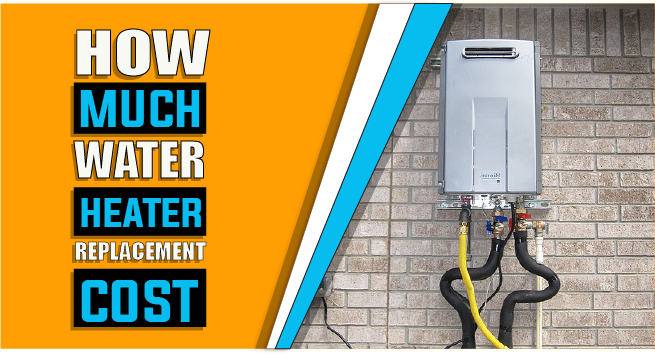
What are the average costs for the replacement of a water heater?
Your water heater is a crucial appliance in your home, providing you with the comfort of warm showers, clean dishes, and efficient laundry. However, like all appliances, it has a finite lifespan and will eventually need to be replaced.
Usually, homeowners can expect to spend anywhere from $500 to $7,500 for a new water heater. However, it’s important to note that this is just an estimate, and costs can vary based on factors such as the type of heater, size, fuel source, and additional installation requirements.
While costs can vary significantly based on the factors and your location, here are some average estimates to give you an idea:
- Traditional Tank Water Heater: On average, replacing a tank-style water heater can range from $800 to $2,500, including installation.
- Tankless Water Heater: Installing a tankless water heater can cost anywhere from $1,000 to $4,500. However, the energy savings over time can offset the higher upfront cost.
- Hybrid Heat Pump Water Heater: These energy-efficient heaters may cost between $1,200 and $4,000, including installation. Their lower operating costs can provide long-term savings.
- Installation and Labor: Installation costs can vary but typically range from $500 to $1,500, depending on the project’s complexity and local labor rates.
- Permits and Miscellaneous Costs: Permit fees and other miscellaneous expenses can add $100 to $500 to the overall cost.
Understanding the average costs can help you budget for this essential home improvement project.
Are there any factors that affect the cost of water heater replacement?
Yes, various factors can impact the cost of water heater replacement. These factors include labor charges, any necessary modifications to the existing plumbing system, permits or code requirements, and the complexity of the installation. Additional features can also affect the overall cost, including:
1. Ventilation Requirements:
The type of water heater you choose, whether it’s a conventional tank-style or a tankless unit, may have specific ventilation requirements. This can impact the installation and cost in the following ways:
- Chimney or Venting: Older tank-style water heaters may be vented through a chimney. If your new unit requires a different type of venting, such as a direct vent or power vent, you’ll need to account for the cost of modifying or installing the new venting system.
- Location Considerations: The location of your water heater, to exterior walls or existing venting pathways, can influence the complexity and cost of ventilation modifications.
2. Permits and Code Compliance:
Local building codes and permit requirements can affect the overall cost. Here’s how:
- Permit Fees: Some municipalities require permits for water heater replacements. These fees can vary widely depending on your location.
- Code Upgrades: If your current water heater setup does not meet the latest building codes or safety standards, you may need to make certain upgrades during the replacement process. Compliance with new regulations can add to the overall cost.
3. Old Water Heater Removal:
Properly disposing of the old water heater is an essential part of the replacement process and can come with its own set of costs:
- Disposal Fees: Depending on your local regulations, you may need to pay disposal fees to dispose of the old water heater at a recycling center or landfill.
- Hauling and Labor: Transporting and disposing of the old unit often requires additional labor and equipment, increasing the overall cost.
4. Warranty and Maintenance Plans:
Consider whether you want to invest in extended warranties or maintenance plans:
- Extended Warranty: Some manufacturers offer extended warranties for an extra cost, providing added protection and peace of mind for your investment.
- Maintenance Contracts: Opting for a maintenance contract can help prolong the life of your new water heater and ensure it operates efficiently, but this comes with an ongoing expense.
5. Quality and Brand:
The quality and brand of the water heater you choose can affect costs:
- Premium Brands: High-quality or premium water heaters may have a higher upfront cost than budget-friendly options, but they often come with more extended warranties and enhanced durability.
6. Energy Efficiency & Labor Rates
Choosing an energy-efficient water heater may cost more initially but can lead to long-term savings on your utility bills. Energy-efficient models often qualify for rebates or incentives, which can offset the higher initial cost.
Labor costs, in addition, can vary significantly by location and the installer’s expertise. Be sure to obtain multiple quotes to compare labor rates and ensure you receive a competitive price.
Financing Options for Hot Water Heater Replacement
Replacing your water heater is a necessary expense, but it doesn’t have to drain your savings all at once. Several financing options are available to help you manage the cost of this essential home improvement project.
This section explores various financing choices and strategies to make the process more affordable and convenient.
1. Personal Savings
Using your savings is the most straightforward and interest-free way to fund a replacement for a water heater. Ensure that you have sufficient funds for emergencies and unexpected expenses before using your savings for this purpose.
2. Home Equity Loans or Lines of Credit
Borrowing against the equity in your home can provide access to a significant amount of funds at relatively low interest rates. Your property secures home equity loans and lines of credit, so failure to repay could lead to foreclosure.
3. Personal Loans
Personal loans offer flexibility and are unsecured, meaning they don’t require collateral. Interest rates on personal loans can vary widely depending on your credit score, so shop for the best terms.
4. Credit Cards
Using a credit card for your product replacement can provide convenience and potential rewards or cashback benefits. High-interest rates on credit cards can lead to substantial long-term costs if you don’t pay off the balance quickly.
5. Manufacturer or Retailer Financing
Some manufacturers and retailers offer financing options for their products, including water heaters. Please review the terms and interest rates to ensure they are competitive with other financing options.
6. Government Incentives and Rebates
Depending on your location and the type of water heater you choose, you may be eligible for government incentives or rebates that can offset the cost. Research available programs and meet the eligibility criteria and application deadlines.
7. Utility Company Programs
Advantages: Some utility companies offer financing or incentives for energy-efficient water heaters to encourage conservation.
8. Home Improvement Loans
Home improvement loans, such as FHA Title I or 203(k), can be used for water heater replacements and other home upgrades. These loans may have specific requirements and application processes.
Before choosing a financing option, carefully assess your financial situation, credit score, and the terms and interest rates different lenders offer. It’s also wise to consider the long-term cost savings of energy-efficient water heaters when making your decision. You can replace your hot water heater with the right financing strategy while managing your budget effectively.
4 Incredible Tips for Heater Cost Management
Tankless water heaters, also known as on-demand water heaters, offer unique opportunities for cost management. Here are some tips tailored explicitly to managing the costs associated with tankless water heaters:
1. Shop Around:
Regarding heater replacement, obtaining quotes from multiple licensed and reputable plumbers or contractors is wise.
Prices for the same type and brand of water heater installation can vary significantly from one contractor to another. Obtaining multiple quotes allows you to compare and select the most cost-effective option.
Moreover, contacting multiple professionals allows you to evaluate their expertise and customer reviews. It’s not just about the lowest price but also about finding a trustworthy and skilled installer who can do the job correctly.
Having several quotes in hand also provides room for negotiation. You may be able to work with your preferred contractor to adjust the cost or explore any available discounts or promotions.
2. Consider Energy Efficiency:
While energy-efficient water heaters may have a higher initial price tag, they often provide long-term cost savings.
Energy-efficient water heaters, such as heat pumps or tankless models, typically consume less energy to heat water. This translates to lower monthly utility bills, which can add to substantial savings over the heater’s life.
Moreover, energy-efficient heaters are also more environmentally friendly, as they reduce your carbon footprint by consuming less energy. This aligns with green living principles and may make you eligible for energy-related incentives or rebates in some areas.
While the upfront cost may be higher, an energy-efficient heater is often a wise long-term investment. You’ll recoup the extra expense through lower operating costs and potentially increased home value.
3. Plan:
Proactive planning for this replacement can save you money and reduce stress. Here’s how planning benefits cost management:
When your current water heater shows signs of wear and inefficiency, such as leaks, inconsistent heating, or unusual noises, it’s time to start planning for replacement. Waiting until it fails ultimately can lead to emergency replacements, which are often more expensive due to immediate scheduling and inconvenience.
Knowing that your water heater has a limited lifespan, you can budget for its replacement in advance. Setting aside funds gradually for this purpose ensures that you’re financially prepared when the time comes.
Planning ahead gives you ample time to research different types of water heaters, obtain multiple quotes, and make informed decisions without feeling rushed or pressured.
4. Maintenance:
Regular maintenance is crucial for extending the life of your current water heater and delaying the need for replacement. Here’s why maintenance is a cost-effective practice:
Routine maintenance, such as flushing the tank, checking for leaks, and inspecting heating elements, helps keep your water heater in optimal condition. This can extend its lifespan, saving you money on premature replacements.
Over time, sediment buildup and corrosion can reduce the efficiency of your water heater. Regular maintenance prevents these issues, ensuring that your heater operates at peak performance, reducing energy consumption, and lowering utility bills.
At the same time, neglecting maintenance can lead to minor issues evolving into major and costly repairs. By addressing minor problems early through maintenance, you can prevent more significant and expensive breakdowns.
Incorporating these cost management tips into your approach to heater replacement can help you make a financially prudent decision while ensuring a reliable hot water supply for your home.
Conclusion:
The cost of replacing a water heater can vary significantly based on factors such as the type of heater, size, fuel source, and additional installation requirements. In general, this replacement cost ranges from $500 to $7,500. Gas water heaters typically fall between $700 and $2,700, while tankless water heaters cost around $1,200.
As discussed in this article, different factors like labor and the complexity of the installation can also contribute to the overall cost. It’s crucial to consider these factors and obtain quotes from reputable service providers to get an accurate estimate.
Ultimately, how much should a water heater replacement cost will depend on individual circumstances and preferences!
Relevant Questions:
Gas water heaters typically cost $700 to $2,700 for replacement. The specific cost depends on factors such as the size of the unit, brand, efficiency rating, and any additional installation or modification requirements.
Tankless water heaters, known for their energy efficiency and on-demand hot water supply, generally have higher upfront costs than traditional tank-based models. As we mentioned, the replacement cost usually begins at around $1,200 and goes up depending on the installation’s brand, capacity, and complexity. It’s advisable to consider long-term savings in energy costs when evaluating the investment in a tankless water heater.
To get an accurate estimate, it’s recommended to contact multiple reputable plumbers or heating specialists in your area. They can assess your needs, evaluate the existing infrastructure, and provide a detailed cost breakdown, including materials, labor, and additional services. Obtaining multiple quotes will help you compare pricing and choose the best option for your budget and requirements.
While obtaining a cost estimate, it’s essential to inquire about potential hidden costs. These can include unexpected repairs, the need for additional plumbing work, or any unforeseen complications that may arise during the installation process. Working with trusted professionals who can provide transparency and explain all potential costs upfront is advisable.
Ella John is passionate about helping her readers make the best choice when purchasing a heater. She understands that selecting a heater can be difficult and strives to provide information to help make the decision easier. Ella’s website, Heatersinfo.com, provides valuable insight into heating trends and types of heaters and tips on how to care for them. She also advises selecting the right heater based on individual needs and preferences. Her expertise in electronics makes her an excellent source of knowledge, and she is confident that anyone who visits her website will find the perfect heater information for their needs. Ella’s dedication to helping others make educated decisions about buying the right heater is unparalleled, and she hopes to continue offering her expertise for many years. With Ella’s help, finding the perfect heater can be a breeze!

